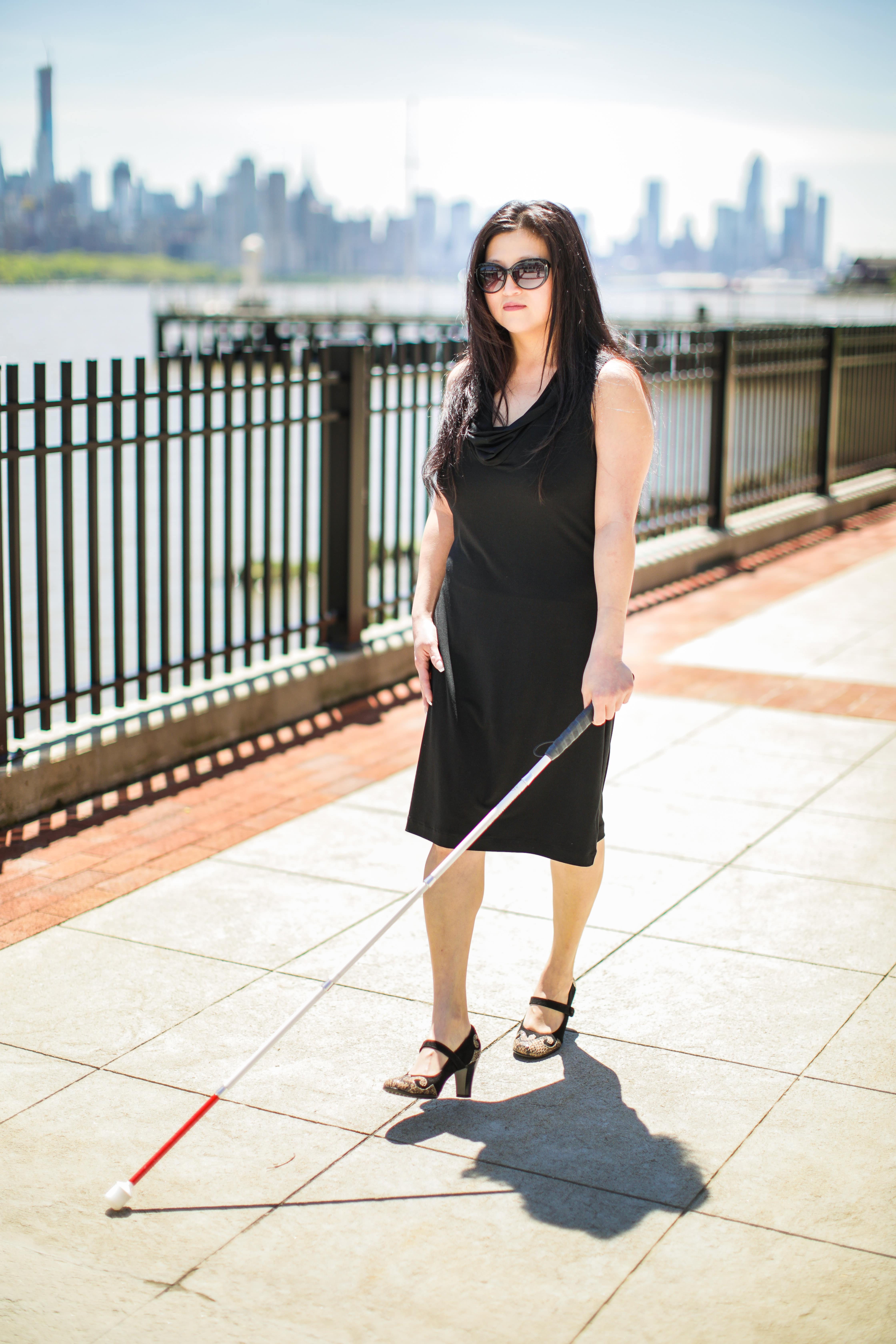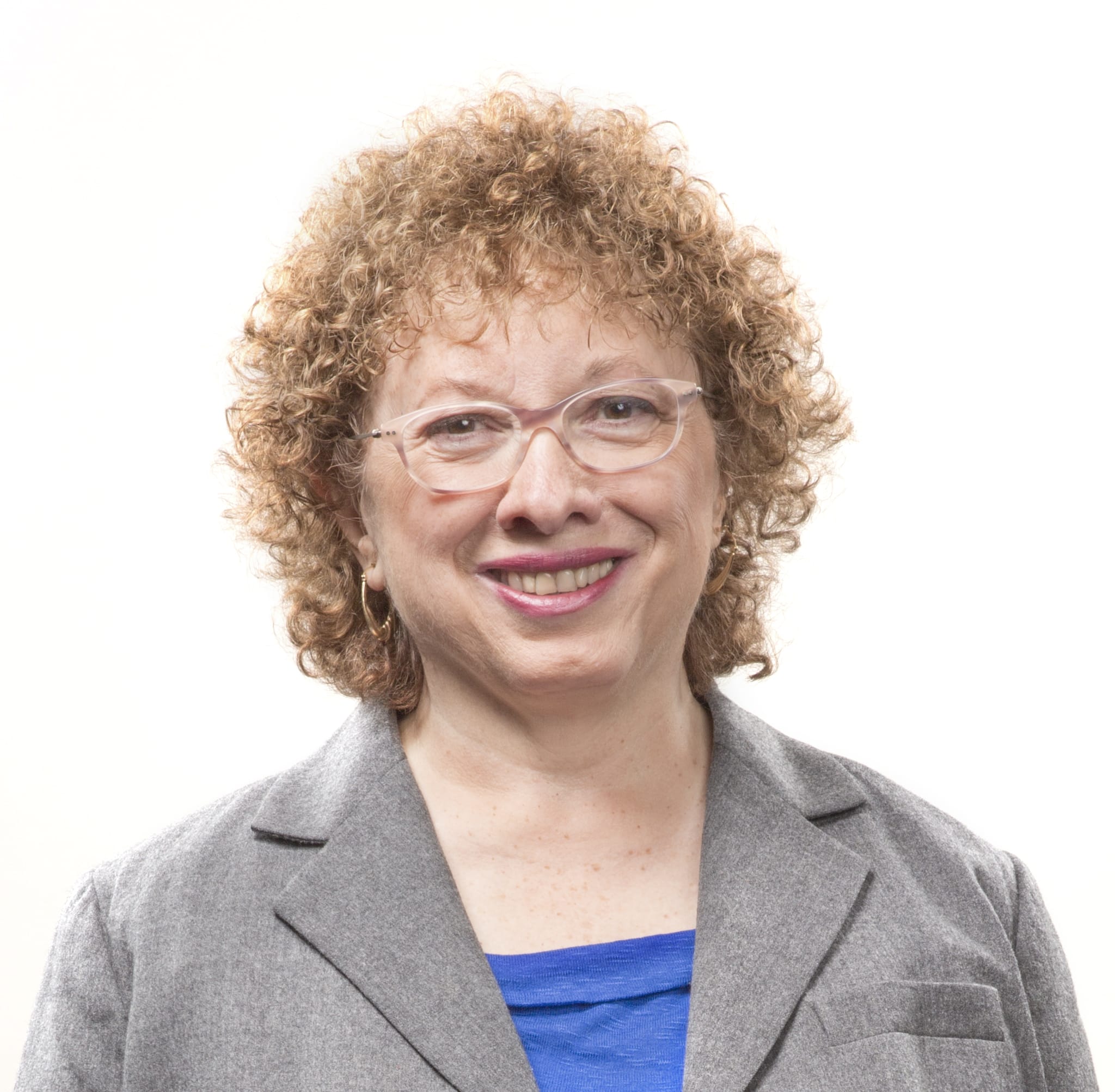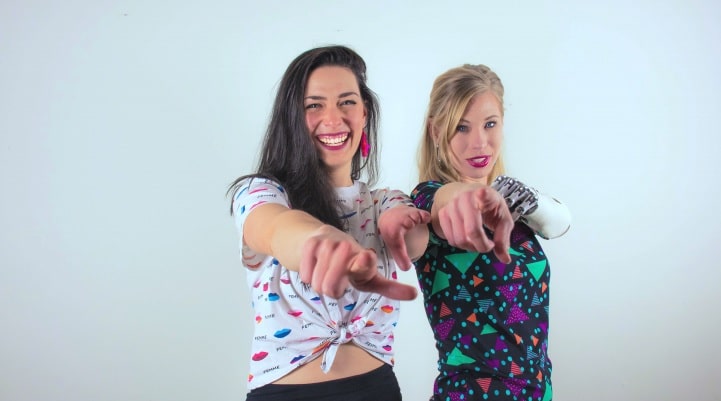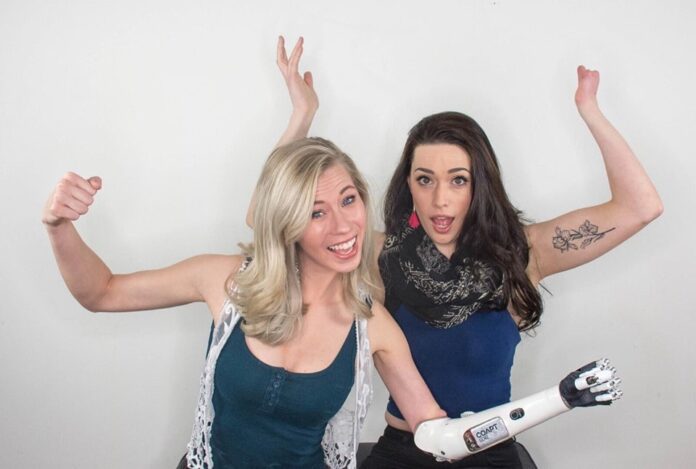If you’re a podcast junkie like me, you probably spend time searching out programs that entertain, inform and inspire. Whether you’re in the car running errands or curled up on the couch with a cup of tea, these five disability-focused podcasts are worth a listen.
1. AccessPoint with Lis Malone
With a tagline of “where the dialogue between the mainstream and the disabled communities meet,” AccessPoint hopes to foster real conversations and bridge the gap between the two. Launched in 2015, AccessPoint aims to empower listeners to discover, learn and share opinions and ideas on accessibility, inclusion, acceptance and understanding.
At the microphone is Lis Malone, who lives with a degenerative retinal disease called retinitis pigmentosa. Diagnosed at age 20 and declared legally blind by 30, Malone proudly serves as an advocate for the blind and visually impaired.
“When I started podcasting, I went into it without thinking about who I was trying to target, but rather what message I wanted to send,” explains Malone. I wanted to be able to discuss topics focusing on disability in a very open, honest way, which could appeal to just about anyone. In doing so, I’ve had listeners from around the world and of various demographics, which I found to be both surprising and promising.”
This eight-episode, interview-driven podcast showcases various representatives of the disabled community and discusses a range of topics. Past episodes include talking with kids about disability, inclusive product design, and tech and web accessibility.
“I often hear that my listeners are moved by the fact that my guests and I speak from the heart,” notes Malone. “Some podcasts provide entertainment while others provide education. My podcasts tend to leave the listener with a feeling.”

2. Breaking Dishes with Lis Malone
Although AccessPoint was a limited-run podcast, Malone launched a second podcast in May 2019 called Breaking Dishes with longer-term aspirations. (You can find Breaking Dishes on iTunes, Spotify, Google Podcasts, Stitcher and other podcast platforms.) Less interview-driven and more discussion-based, Breaking Dishes continues forward and covers a broader spectrum of topics where Malone not only includes disability themes, but also more diversity themes, as she’s a woman living with a disability, she’s a racial minority and she’s an interracial adoptee.
Showing both vulnerability and kick-ass attitude, Malone gets real in Breaking Dishes (Episode 1: New Beginnings), as she discusses dealing with vision loss. “It was definitely the most challenging experience of my life. There were times when I did not handle the vision loss very gracefully. It was a process. There was a mourning period. I had to let go of the woman that I used to be. I had to say goodbye to being a sighted person. But over time, with rehabilitation, counseling and mentorship, I had to accept my new identity and learn to thrive as a blind person. And that meant reinventing myself, tapping into talents and re-purposing them, reminding myself that I have worth, surrounding myself with people who were good for me and that I was good for them. It truly was the ultimate new beginning for me personally.”
Noting how podcasting has created a fantastic platform for all voices, Malone says she feels humbled to be in the company of other content creators with the goal of diversifying the landscape. “I wish creating a great podcast was enough,” she adds. “But we also need to build awareness within our communities that these topics are important, and we need to support one another’s work.”
3. Disability Matters with Joyce Bender
Every Tuesday from 2:00 pm – 3:00 pm Eastern Time, you can listen to Joyce Bender and her expert guests talk about competitive employment and empowerment of people with disabilities. Technically a talk radio show (on VoiceAmerica.com) and not a podcast, it’s still worth tuning into every week. True to its mission and audience, Disability Matters is open-captioned for the deaf community.
Launched in 2004, Disability Matters has logged an amazing 700 episodes so far, featuring prominent disability leaders such as Congressman Tony Coelho (primary sponsor of the Americans with Disabilities Act), Governor Dick Thornburgh, and Andy Imparato (executive director of the Association of University Centers on Disabilities). Experts discuss how people with disabilities can secure meaningful employment, sustain a long-term career and make a positive impact. On the flipside, they also address how others (including employers) can benefit from hiring people with disabilities.
Bender herself is an expert, with 20 years of experience providing disability employment expertise as a consultant. She focuses on recruitment, workplace mentoring, strategic planning, training and digital accessibility, tapping into a network of thousands of disability and academic institution partners as well as a database of 27,000 qualified candidates with disabilities.
Although the show targets people with disabilities, businesses and Federal agencies, it also appeals to anyone interested in learning more about the disability rights community. Bender explains, “The goal of the show is to see an increase in the abysmal employment of people with disabilities, break down stigma and educate our communities.”
With hundreds of episodes, which ones rank high with listeners? “We have the top 10 shows data for every week and number one is Tony Coelho,” cites Bender. Other fan favorites include shows with CEOs, senators and celebrities, such as Jenny-Lay Flurrie from Microsoft.
While Disability Matters shares perspectives from business leaders, government officials and disability advocates on “how to move the needle on disability employment,” there’s still more work to be done. “I’m only surprised that after 15 years, the unemployment rate is still double that of people without disabilities—and next year is the 30th anniversary of the signing of the ADA,” Bender points out. As a long-time, on-air influencer, Bender understands how she’s helping to drive a movement of inclusive media and says she feels honored to host this show. “To have the opportunity to change lives and educate everyone about the disability community–I live with epilepsy–is so important,” she says.
Bender tips the hat to Highmark, the show’s lead sponsor for three years. “I think when a corporation sponsors the show for one year, it speaks volumes about the credibility.”

4. Special Parents Confidential with John Pellegrini
Dubbed “the resource podcast for parents of special needs children,” Special Parents Confidential launched in 2013, on a part-time basis, with John Pellegrini as the show host. The show targets parents of special needs kids—any special needs, as Pellegrini doesn’t focus on just one particular issue. Adopting a “we’re-all-in-this-together” approach, the show also appeals to family members, relatives, caregivers and anyone with any kind of connection to a person with special needs.
“I came about this because of our son, who has some special needs,” explains Pellegrini. “We couldn’t get a diagnosis that explained all his issues for the first few years, so we attended a number of different support group meetings in an effort to learn more. I realized that, for many parents, attending a support group meeting is nearly impossible.” With his 30-year background in radio and audio production, Pellegrini decided to do a podcast that would serve as a virtual support group meeting that parents could access any time they want. “My role is to be the support group’s facilitator,” he says. “I get in touch with experts on different subjects and ask the kinds of questions that I, as a parent, would want to know.”
With 70 episodes recorded already, the podcast aims to fill the airwaves with expert advice on a variety of issues that parents of kids with special needs face. The show covers common parenting concerns such as getting and coping with a diagnosis, assistive technology, medical issues, insurance, education and more. (He cites Episode 15: Applied Behavior Analysis (ABA) as the single most downloaded episode so far.) In particular, Pellegrini enjoys interviewing adults who have special needs and hearing them tell stories of what their lives were like growing up with their challenges. “The contrast of how we used to deal with special needs and special education in the past compared and how things are done today shows great improvements, but sometimes we’ve also taken some ridiculous steps backward,” he points out.
With the backdrop of his career in the mainstream media, Pellegrini says, “I think podcasting is a major shot of life and inspiration. The ‘mainstream media’ has become too corporatized and homogenized to the point where you hear nothing but the same thing over and over. Podcasting—when done well (and unfortunately some of it isn’t)—offers a greater variety of subjects that people should know about.”
One overarching theme that others should know about lies in the power of kids with special needs. “What I hear more often in different ways from everyone I’ve talked to is, ‘Never underestimate a child with a special need,’” Pellegrini points out. “Always assume competency, because, when given the right kinds of assistance, they are far more capable than you could imagine.”
5. Disarming Disability with Nicole Kelly and Sarah Tuberty
In 2014, Nicole and Sarah met at a camp for limb-different children called Camp Winning Hands in California and they’ve been friends ever since. They joined forces to create Disarming Disability.
Fairly new on the podcast scene, the show launched weekly on February 27, 2019. The hosts just completed their first season comprised of 13 episodes in three distinct chapters: Disability History, Disability in the Media and How to Be an Ally. They hope to attract listeners who want to learn more about disability and learn how to make a more inclusive society. “We do want emphasis on those living with a disability, that they are connected to their history, and feel empowered in their experience,” explains Kelly.
The show’s goal? To deconstruct the disability social construct by connecting with experts in the disability field. To accomplish that, they’ve covered a lot of ground in their first season. Early fan favorites include learning about the hosts’ history as well as the media chapters that have empowered listeners to tackle projects that increase the visibility of disability. The hosts were even a bit surprised by a few of topics that ranked high in popularity.
“I felt really struck by our media episode with Lawrence Carter-Long, who spoke of his ‘light bulb moment’ when he realized that the larger society did not think of him and his experience as an equal. That those with different bodies, those like us, were better off dead,” recalls Tuberty, noting how it stirred her anger. “Feeling that anger made me realize that we have to do something. We can do something. Disability is a social construct; it’s based on rules we as a society made up. This means we have the power to make new rules. I am using my heated energy in ways to build beauty in the world.”
Meanwhile, Kelly was really struck by their “How to be an Advocate: Mental Illness” episode with Patrick Corrigan, a professor who loves data and numbers. “He brought to the forefront that when connecting with people to change the conversation about stigma, it’s important we share our stories,” notes Kelly. “Data and numbers will never ‘change anyone’s mind’ about a topic, but the power of a personal story goes very far!”
Stressing the importance of inclusivity in media, Disarming Disability models how to do it right. The podcast team, nine-members strong, strives to make all content accessible. Besides giving a voice to the disability community through the show, their photos on social media include alt text options. Plus, they post transcriptions of every episode on their website. “We engage with the community and integrate feedback to make our podcast more accessible,” notes Kelly. “We believe we have the responsibility to show other media HOW to be inclusive and we take this job very seriously.”
Kelly shared one of her favorite quotes from the first season, which pretty much sum sup the show’s mission: “We need to create the space, look around and see who is at the table and who is not. Why are they not there and what do we need to do to get them there?”

Author’s Bio: Lisa Beach is a freelance journalist and copywriter. Her work has been published in The New York Times, Good Housekeeping, Eating Well, USA Today Go Escape Florida & Caribbean, Parents and dozens more. Check out her work at www.LisaBeachWrites.com.






